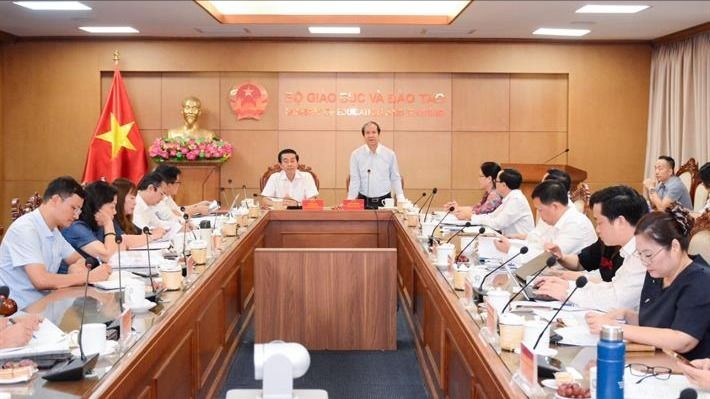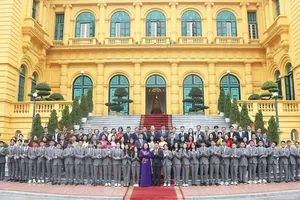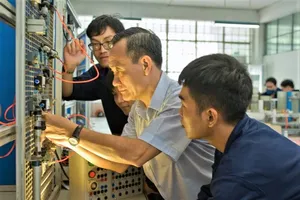
An inspection team from the Central Steering Committee for enhancing the Party’s leadership in integrity education, led by Deputy Head of the Central Internal Affairs Committee Vo Van Dung, worked with the Party Committee of the Ministry of Education and Training
A representative from the Ministry of Education and Training revealed that by implementing the Prime Minister’s Directive No. 10/CT-TTg in 2013 on integrating anti-corruption content into teaching at educational institutions, schools have taught corruption prevention from the 2013-2014 academic year.
After 10 years of implementation, integrating anti-corruption content into teaching at educational institutions has been a sound policy. It has been supported by educational institutions, teachers, lecturers, students, and society as a whole.
Regarding anti-corruption education, learners will have fundamental knowledge about preventing and combating corruption, enhancing their awareness of civic duties and responsibilities toward the community. It also fosters the development of integrity and self-defense capabilities in students, enabling them to address corruption and take a stand against it.
Until now, all high schools have organized teaching on anti-corruption content, and most high school students have been studying this. For colleges, universities, teacher training colleges, and pedagogical colleges teaching anti-corruption has seen positive changes and is gradually becoming a part of ethical education and a commitment to integrity.
During the working session, Deputy Head of the Central Committee’s Internal Affairs Board Vo Van Dung emphasized the urgency and necessity of integrity education in the current phase. This comes at a time when the Party and the State are resolutely and vigorously combating corruption.
According to him, the education sector has taken a step forward in integrity education suggesting that integrating integrity education harmoniously into the ethical curriculum is essential. The Ministry of Education and Training should proactively study and restructure programs to align with different educational levels, especially at higher educational facilities. Proper emphasis on integrity education contributes to shaping good character, ethics, and a sense of moral responsibility for the nation’s future generations
Minister of Education and Training Nguyen Kim Son asserted that integrity education is not only an urgent matter but also a fundamental value in human education. It is not merely an add-on or integration; rather, it is a personal responsibility and a significant goal, embodying the spirit of education. To promote integrity education, a foundation of ethical education is essential.
In the context of implementing ethical education, which faces numerous challenges today, the Education Minister emphasized that the most crucial aspect of ethical education is fostering a positive mindset.
Additionally, there’s a need to enhance legal education and rigorously enforce the law. Ethical education plays a vital role in shaping citizens’ character, promoting integrity, and combating corruption. By integrating anti-corruption content into teaching, educational institutions contribute to building a responsible and conscientious society.
The Minister also emphasizes the collaboration between families, schools, and society in ethical education. The role of educators is crucial in promoting ethical values, and there’s a need for curriculum development and specialized courses in ethics within political schools. Ethical education plays a vital role in shaping citizens’ character, promoting integrity, and combating corruption. By integrating anti-corruption content into teaching, educational institutions contribute to building a responsible and conscientious society.
























